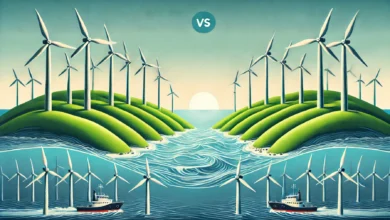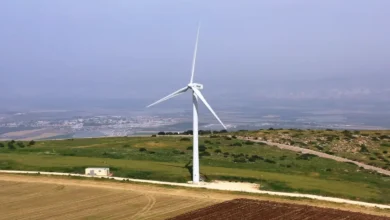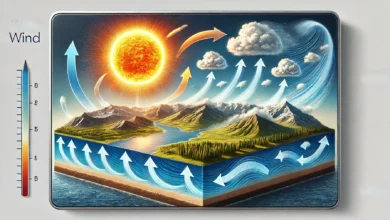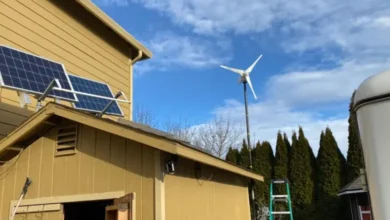Benefits of Wind Power
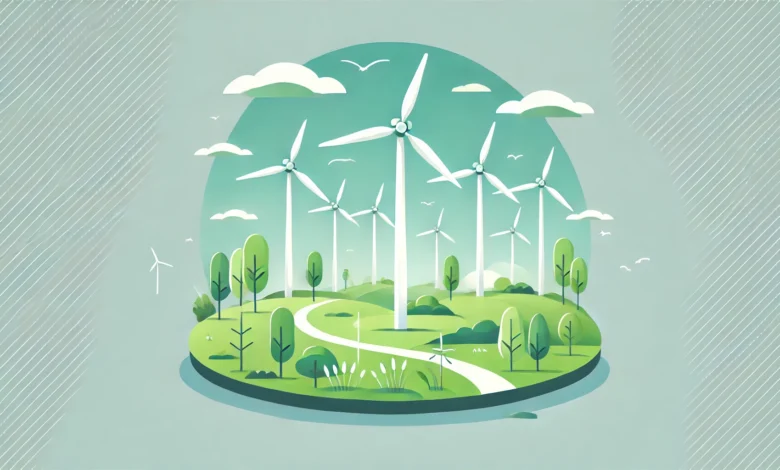
Wind power has emerged as one of the most sustainable and widely adopted renewable energy sources in the world. With advancements in technology and the growing focus on clean energy, the benefits of wind power are more relevant than ever. From reducing greenhouse gas emissions to creating jobs and boosting economies, wind energy offers numerous advantages for a sustainable future. This article explores the advantages of wind energy and highlights its role in reshaping global energy solutions.
Contents
- 1 Benefits of Wind Power | Sustainable Energy Solutions
- 2 How Does Wind Power Work?
- 3 Advantages of Wind Power
- 4 Benefits of Wind Farms
- 5 Advantages of Using Wind Turbines
- 6 Environmental Benefits of Wind Energy
- 7 Comparing Wind Energy with Other Renewable Sources
- 8 Economic and Social Impact
- 9 Future of Wind Power
- 10 Harnessing Wind Power for a Sustainable Future
Benefits of Wind Power | Sustainable Energy Solutions
Wind power has become one of the most promising renewable energy sources, offering countless advantages for sustainability and energy independence. The advantages to using wind energy include its ability to generate electricity without harmful emissions, making it a clean and eco-friendly option.
Modern wind turbines advantages highlight their scalability, efficiency, and adaptability, making them suitable for both small-scale and large-scale energy projects. With advancements in technology, the advantages to wind energy continue to grow, providing reliable and cost-effective power solutions across the globe.
Additionally, the advantages of using wind turbines extend to low operating costs and minimal environmental impact, ensuring long-term benefits for communities and economies. Wind power stands as a vital resource for a greener, more sustainable future.
How Does Wind Power Work?
Wind power harnesses the kinetic energy of moving air to generate electricity. Modern wind turbines convert this energy into electrical power, which can be distributed through grids to homes, businesses, and industries.
Key Components of Wind Energy Systems
- Wind Turbines: Capture the wind’s kinetic energy and convert it into mechanical energy.
- Generator: Transforms mechanical energy into electrical energy.
- Tower: Elevates the turbine to higher altitudes where wind speeds are stronger and more consistent.
- Blades: Designed aerodynamically to maximize energy capture.
Advantages of Wind Power
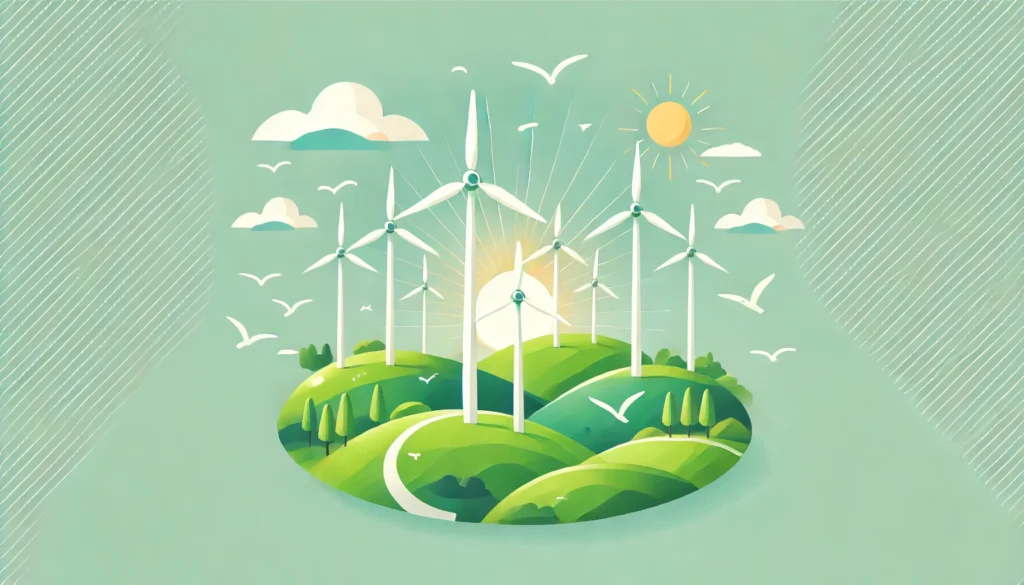
1. Renewable and Sustainable
One of the primary advantages of wind power is that it’s renewable and inexhaustible. Unlike fossil fuels, it does not deplete over time, making it a long-term solution for energy production.
2. Low Operating Costs
Once wind turbines are installed, the costs associated with maintenance and operation are relatively low compared to other energy sources. These wind turbines advantages make them an attractive choice for clean energy.
3. Reduces Greenhouse Gas Emissions
Wind energy benefits include its ability to produce electricity without releasing harmful greenhouse gases, thus combating climate change.
4. Supports Energy Independence
Countries can reduce dependence on imported fuels by investing in wind power advantages, ensuring energy security. These benefits to wind power provide nations with long-term sustainability.
5. Scalable and Flexible
From small wind farms to large-scale utility projects, wind power advantages include adaptability for various energy needs. Advantages to using wind energy also mean flexibility for rural and urban locations.
Benefits of Wind Farms
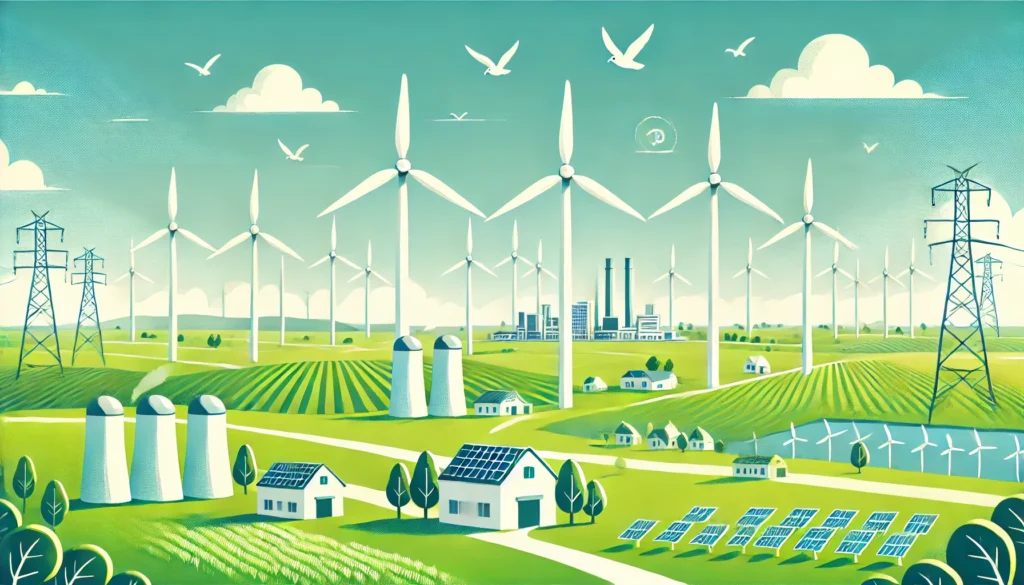
1. Job Creation and Economic Growth
Wind farms create thousands of jobs, supporting local economies and promoting development in rural areas. These benefits for wind energy also contribute to regional prosperity.
2. Land Efficiency
Wind farms require less land than traditional energy plants, preserving agricultural areas and enabling dual land use.
3. Community Development
Revenue generated from wind energy benefits can be reinvested in local infrastructure, education, and health programs, showcasing the advantages wind energy brings to communities.
Advantages of Using Wind Turbines
1. Efficient Power Generation
Modern wind turbines are designed to operate efficiently even at low wind speeds, maximizing energy output. The advantages of wind turbines make them a key part of clean energy strategies.
2. Scalability
Advantages wind turbines include their ability to be deployed individually or as part of larger projects, offering scalable energy solutions.
3. Minimal Environmental Impact
Compared to fossil fuels, the advantages of wind powered energy include minimal pollution and ecosystem disruption. Additionally, the advantages of windmills make them eco-friendly alternatives to traditional energy sources.
4. Improved Energy Efficiency
With modern innovations, wind turbine benefits now include higher efficiency rates, ensuring maximum energy output even in varying wind conditions.
Environmental Benefits of Wind Energy
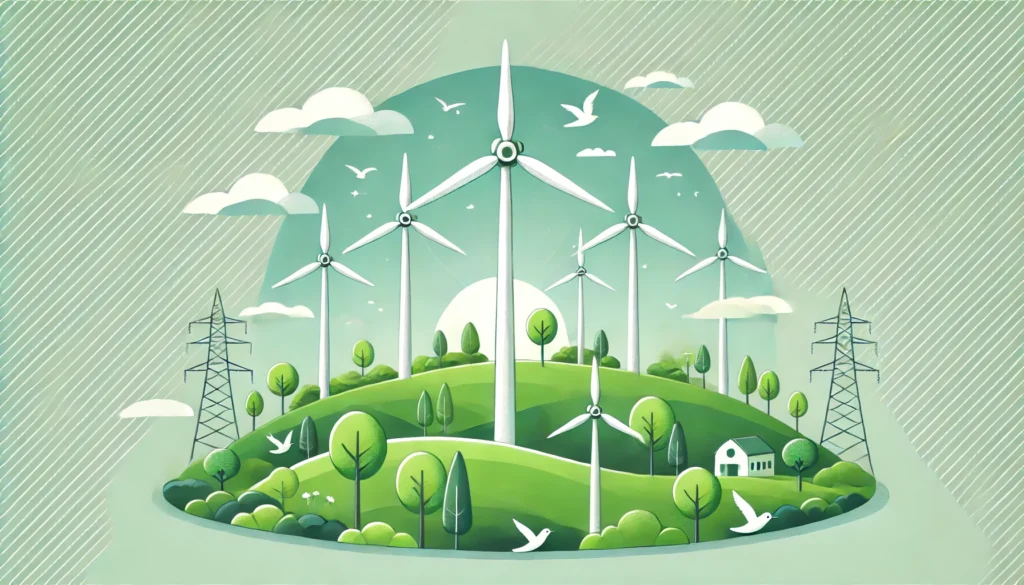
1. Carbon-Free Energy Source
One of the top advantages of wind energy is its ability to generate electricity without producing carbon dioxide or other pollutants.
2. Preservation of Water Resources
Unlike thermal power plants, wind energy benefits do not require water for cooling, conserving vital water resources.
3. Wildlife Protection Programs
Modern wind farm advantages incorporate technologies to minimize bird and bat collisions, ensuring ecosystem safety.
Comparing Wind Energy with Other Renewable Sources
| Feature | Wind Energy | Solar Energy | Hydropower | Biomass Energy |
|---|---|---|---|---|
| Energy Source | Wind | Sunlight | Water Flow | Organic Materials |
| Availability | Day and Night | Daylight Only | Continuous (if water flows) | Limited by Material Supply |
| Installation Cost | Moderate | Moderate to High | High | Moderate |
| Maintenance Cost | Low | Low | Moderate | Moderate |
| Environmental Impact | Low | Low | Medium (can affect ecosystems) | Low to Medium |
| Scalability | High | High | Medium | Medium |
1. Wind vs Solar Energy
- Advantages of windmills include the ability to produce energy day and night, unlike solar power, which depends on sunlight.
2. Wind vs Hydropower
- Advantages of wind energy include minimal environmental impact, whereas hydropower may disrupt aquatic ecosystems.
3. Wind vs Fossil Fuels
- Wind power advantages eliminate harmful emissions, unlike fossil fuels that contribute to global warming.
Economic and Social Impact
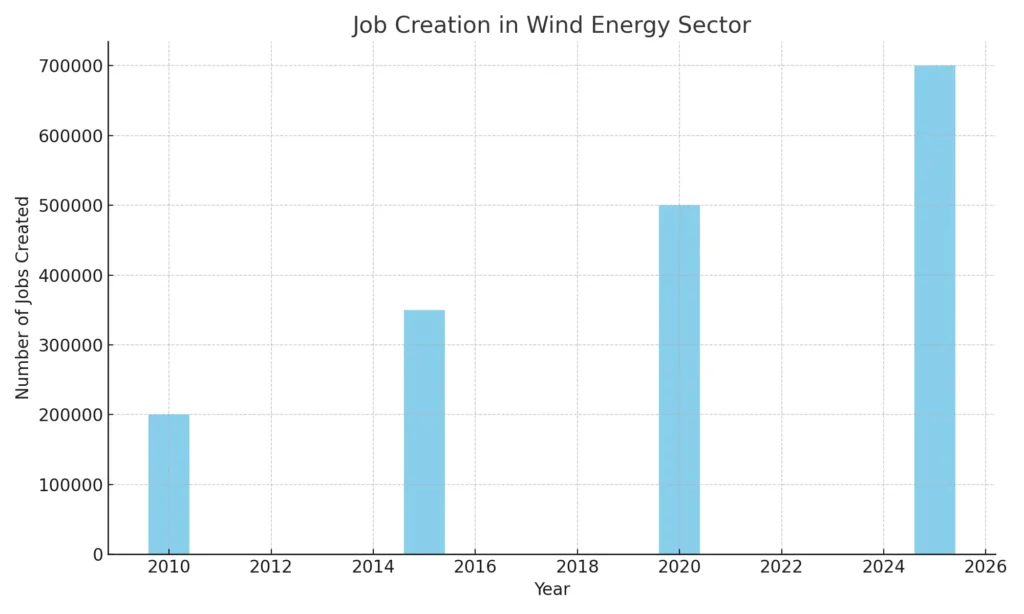
1. Cost-Effective Energy Source
Advancements in wind turbine benefits have made wind power one of the most affordable renewable energy sources.
2. Community Involvement
Local communities benefit from revenue sharing and employment opportunities through advantages to wind energy projects.
3. Global Reach
Countries investing in advantages of using wind turbines are leading the transition to cleaner energy.
Future of Wind Power
With ongoing innovations in wind energy technology, the future of wind power advantages looks promising. Floating offshore wind farms and smarter turbine designs are expected to make wind energy benefits even more accessible and cost-effective.
Harnessing Wind Power for a Sustainable Future
The benefits of wind power extend beyond energy production, supporting economic growth, environmental preservation, and energy independence. As technology advances and costs decrease, wind energy benefits will continue to play a crucial role in creating a cleaner, more sustainable world.
